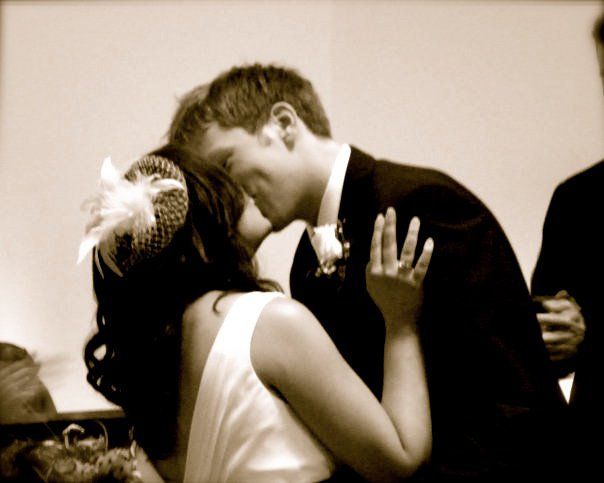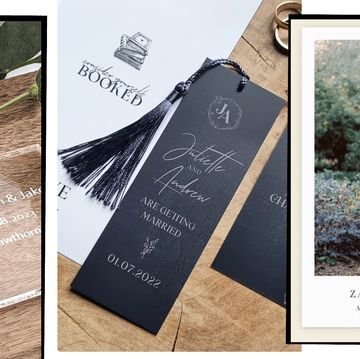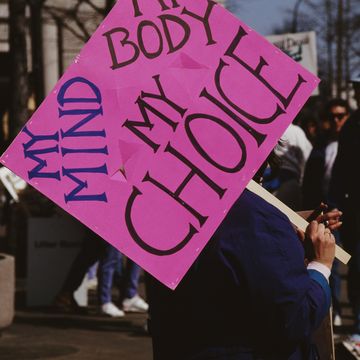When I was 26 years old, I almost killed myself. It was at once both impulsive and entirely thought out — a decision that, if I'm being honest, had been a long time in the making. I was diagnosed with depression and anxiety at 23, right after I got married, but looking back, I can see signs that extend back to my teens. In my mind, killing myself was a tidy solution to a never-ending sadness. It seemed like a way to help Matt, my husband, who was mired in a marriage in which he'd once spent Valentine's Day trying desperately to help me off the couch and out of an interminable crying jag.
Thanks to some lingering last-minute doubts and a mercifully quick-thinking friend who figured out that I wasn't OK, I ended up in a psychiatric ward, and I stayed there for a week. I know now that being there saved my life. But while finally getting real help felt beyond relieving, it didn't quite feel that way for Matt. That's because, in an attempt to protect him, I'd kept my suicidal thoughts a secret. Until I was hospitalized, he'd had no idea.
When I left the hospital, still alive and equipped with a new regimen of antidepressants and regular appointments with my therapist, Matt and I decided that our only choice was to start over. We moved to a new house in a new town and practiced saying all the things we'd learned to say, like, "I'm feeling really anxious" and "Don't worry, I'm here for you". We high-fived each other over our newfound relationship awesomeness and felt like we'd dodged all the bullets. But the truth is that you don't get rid of mental illness through communication skills and extra high-fives. The truth is that you don't get rid of mental illness at all. It stays with you like a third person in your marriage, and you both have to agree to cater to its needs.
When winter came that year, I began longing for my bed. Bed has always been my depression gateway drug, sucking me in so that the sadness can take hold. It wasn't long before I found myself pulling the covers over my head each morning as Matt dressed for work, no longer bothering to pretend like I wasn't fully intending on going straight back to bed as soon as he left. I was desperate to hide from the feelings of numbness and dread I had to contend with whenever I was awake. I toyed with the idea of admitting what was happening just like I promised I would, but I didn't. Once again, it started to feel easier just to keep it to myself.
But while I was quickly sliding back into my old habits, Matt had somehow found a better way to shake my fog. On one particularly rough day, I had spent hours hiding out in our bedroom, binge-reading a blog I'd found about an American expat in Finland. The more I read, the more my depressed mind began thinking that life seemed so much better there. And by the time Matt got home that night, I'd convinced myself that my misery wasn't actually about depression at all. It was just that we didn't live in a magical place like Finland where everyone was happier than we were.
"You need to get up," Matt said, after he walked into our room and saw me in the same pajamas I'd been wearing when he left that morning. His face was tense with worry and frustration. "You can't stay in bed like this. It's not good for you."
"We should move to Finland," I blurted out. Of all the things he may have expected me to say in reply, I'm sure that certainly wasn't one of them.
I tried to simultaneously explain myself and sell him on the idea. "I mean, I just think we live in the wrong place. We're doing all the stuff you're supposed to do, we're trying so hard, and we're still miserable. Let's move to Finland. It would be an adventure."
My abrupt suggestion hung in the air for a moment, before he sighed, exasperated. "Alana, we're not going to sell our house and move to Finland. We have a life here. We can't just throw that away."
I didn't expect him to take my request seriously, yet I could feel my irrational, inner depression voice bubbling up to the surface. He doesn't get it, the voice said. If he cared about your happiness, he'd say yes. Tears quickly welled in my eyes.
"Why don't you understand that living here is killing me?" I fired back. I could see his face tightening, wanting to scream at me while also trying to be there for me.
The sight of his frustration unnerved me, because in the past I knew Matt would have immediately surrendered. He would have seen that I was depressed and overreacting, and would have opted to give up quickly and wait for it to blow over. Fighting my irrational thinking didn't seem worthwhile to his logic-driven mind. But this time he understood that what he actually needed to do was stand up for us.
"You're struggling. I get that," he said, slowly. "I know you're getting worse and I want to help you, but when you talk like this I don't even know what to say."
It surprised me to hear him admit it. Most often, we had let my illness be the elephant in the room, neither of us wanting to speak about it. But this time, he kept talking.
"I hate that this is a thing that happens to you. I hate that your brain makes you want to hide in bed all day. I hate that you don't want to tell me when it happens, and I hate that you think you wouldn't still feel this way if we moved to Finland. But this isn't you. This is just the stuff you say when you're depressed. The things your brain says are not true. You need to realize that."
My first instinct was to scoff at his completely sane response. I didn't want to hear him confirm my worst fears about what was happening: that once again I was really not OK.
Thankfully though, the real meaning of his words hit me next. I saw that he wasn't trying to say that I was a burden. He was actually saying that depression was the burden — and more importantly that it was our burden. I let my illness tell me that my marriage couldn't hold under the weight of my struggles. But just as my depression is not who I am, it's also not my responsibility to fix single-handedly. The deal we'd made was that we'd face life together. And while my stay in the psych ward may have forced me to let him in, I still had yet to give him the opportunity to stand by my side.
Matt and I saw my doctor together again, and after having my medication adjusted, I began in time to feel the haze lifting. We both breathed a sigh of relief as our lives began to resemble something that felt normal, yet we also knew this wouldn't be the end.
We don't have it even close to all figured out (who does?), but what we do have is the knowledge that we're in it together. We've kept depression from dividing us, even though that's an active, constant struggle. Ours might not be the marriage I dreamed of pre-diagnosis, but it's somehow more glorious, more beautiful, more frustrating, and so much more alive than I ever imagined. And that's not at all depressing.
Follow Alana on Twitter.














